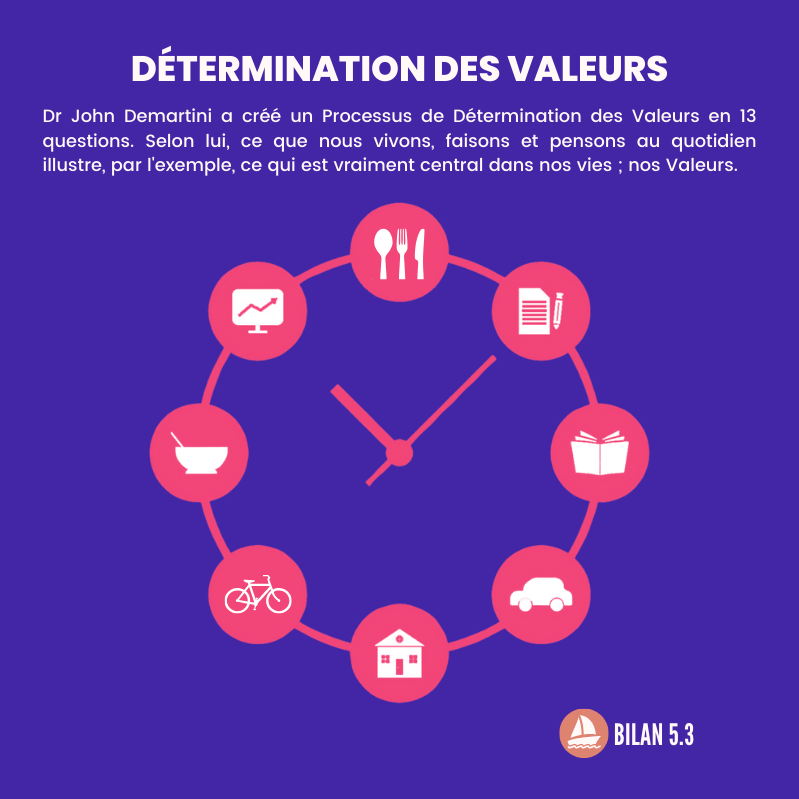The end of the year is the ideal time to take a breath and take stock. What if we asked ourselves the right questions to review the satisfactions, the disappointments and, above all, the lessons of the last 12 months? By answering five simple questions, you will realize that your assessment of the year can become a very good omen for next year.
When winter comes, taking stock of the year can be a super useful exercise! The experiences you have had this year have necessarily offered you opportunities to learn, to evolve and, where appropriate, to know yourself better. Now is the time to review them…
A review of the year for what?
The end of the year is a key moment for take a step backput things into perspective, learn a little more about yourself and obviously, refocus to get off on the right foot in January.
How have you evolved over the last 12 months, in terms of your knowledge, your skillsyour values, your vulnerabilities or even your relationships. You’ve had a lot of experiences this year, so it’s worth taking some time to face them.
This personal assessment, carried out at a time when you are not in the daily rush, also gives you the opportunity to reconnect with what really matters for you.
We can summarize the end-of-year review exercise with 5 questions:
- What do you remember from this year?
- How have I progressed this year?
- How did I handle the hardest time of the year?
- In what areas do I need to improve next year?
- What are my 3 main goals for next year?
No need to do more to take stock of the year.
1. What do you remember from this year?
The first question you can ask yourself for your review of the year is simply: “ what do you remember from this year? » Tu are going to look back on your yearmonth by month, without sorting. You will note all the significant events, the joyful things as well as the delicate episodes, the nice memories, the moments of well-being, the small victories as well as the big steps forward.
To wake up your memory, you can open your calendar, browse your emails and social networks or go through the photo galleries on your phone. By answering this first question, you have all the raw material to complete your assessment.
2. How have I progressed this year?
Based on this little background, you will then ask yourself the following two questions:
- What went well? What are my victories of the year, my successful projects, the pleasant surprises I encountered, etc.?
- At what levels and in what areas have I improved?
Try going a little further: if you achieved something important, what enabled you to do it? What qualities, what SKILLS and what talents did you use to get there? What were the keys to your success and how can you benefit from these experiences for the future?
The idea is to learn from these experiences. There’s no point in taking stock if it’s simply to make a list of everything that went well during the year!
3. How did I handle difficult times?
This is the less positive view of things: what were your main failures This year ? The mistakes you made, the situations that made you uncomfortable, the relationships that disappointed you, the moments that frustrated you…
Here again, what matters is extract useful information of these different experiences. Take the time to reflect on significant situations to better understand the context and the underlying reasons for these failures, disappointments or poor performances.
4. In what areas do I need to improve next year?
What do you want to change, improve, learn? Which direction do you want to take next year, when you take stock of this year? And what first step can you take to put yourself on the right trajectory?
The idea is to start outlining the guidelines for the coming year, or even to set real goals. This is also (and above all) what your review of the year is for!
5. What are my 3 main goals for next year?
It’s difficult to find motivation and start the year off on the right foot when you don’t have clear goals in mind. I’m not talking to you about “good resolutions” that, like 95% of people, you won’t keep. I am referring to realistic goals which, on the one hand, make you pleasure and on the other hand, will be reasons for satisfaction and pride when the time comes for your assessment next year.
Since I’m generous, I’ll give you some ideas to inspire you (it’s up to you to do the rest). All these ideas are within your reach:
- Learn a new language
- Start an online business
- Get back into sport
- Learn to play an instrument
- Discover the cult places in your region
- Write a book
- Start your YouTube channel
- Grow your own vegetables
- Take training that motivates you
- Learn to code
- Take part in a game show
- Go on a trip
- Join a voluntary association
- Find the job of your dreams
- Get (re)partnered
- Learn to cook
- Practice meditation
- Read a book every week
- Reconnect with nature
- Etc.















